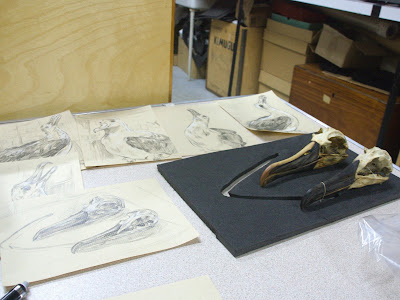I've had an excellent couple of months as far as poetry's concerned, not least the chance to go to readings by some of the country's most celebrated poets, including ...
Photo by Tim Woolf
... Alice Oswald ...
and Caroline Bird, all of whom I've been privileged to hear, courtesy of Bristol Poetry Institute and the Lyra Bristol Poetry Festival.
In particular, Alice Oswald, who was at St George's, blew me away, as she always does. I think this must have been the fourth or fifth time I'd seen her read, and as always, her performance was mesmerising. Except you can't really call it a reading because Oswald speaks her poems from memory. I was quite near the front of the audience this time, and I watched carefully as she announced the title of each poem, paused and then disappeared somewhere else altogether. Pure concentration. I was especially delighted to hear her speak extracts from 'In Memoriam' and most of all, 'Dart', as I'd travelled to Bath back in the early 2000s, I think, to hear her read it and she'd been unable to appear. It's been a lasting disappointment.
Walking back down Park Street to the car park I realised I had my hand clamped over my mouth. This has happened before, notably when I've seen my heroes perform; it's the principle symptom of Bowieitis, which is also known as Leonard Cohen Syndrome. I'm not sure if it's because I get dumbstruck or if I'm trying to stop my heart leaping out of my body through my mouth. I don't think it had happened after a poetry reading before, but there I was, having to remove it to speak to my fellow-IsamBard, David Johnson, at the bus stop.
Talking of the IsamBards, we've been out and about, conducting a fourth poetry walk through the centre of Bristol, from Queen Square to Millennium Square, again as part of the Lyra Bristol Poetry Festival. Unfortunately we had to do battle against a rather loud funfair, which wasn't there when two of our members scoped out the route a couple of months ago, but poetry prevailed and our audience were enthusiastic throughout.
The final event of the Poetry Festival was 'City of Words', a showcase presented in partnership with the Bristol Festival of Ideas. It was a special joy to see my friend Hazel Hammond on stage reading a poem, five years after a stroke that left her with aphasia.
... Lizzie Parker launching her collection, Cormorant, for which I was honoured to write an endorsement, with support from Bob Walton and Claire Williamson ...
... and Rachel Clyne returning to the city that hosted the launch, a year ago, of her collection, 'You'll Never Be Anyone Else'.
Elsewhere, the first draft of my forthcoming collection, 'Love the Albatross', has returned from my publishers, Indigo Dreams, and is awaiting my attention. One of its poems has just come home flushed with success, having been highly commended in the 2024 Slipstream Poetry Competition. A second poem can be read here in Fragmented Voices, while a third found a very stylish home in the latest, 20th anniversary edition of 'Abridged', an compelling journal of poems and photographs based in Northern Ireland.
Also - very excitingly - the collection's artwork, by the very talented Katie Marland, is now in the world. It's way too early to reveal it, but here are some photos Katie took on her visit to Bristol City Museum, where - excitingly - staff brought her albatrosses to sketch. Admittedly they weren't Laysan albatrosses - the title of my collection is, of course, a nod to Wisdom the Albatross - but even so, they had, as Katie puts it, 'a LOT of birdy character and helped [her] to learn a lot about the way they work'. My grateful thanks to her and them.

















.jpg)
.jpg)
.jpg)
.jpg)
.jpg)
.jpg)
.jpg)
.jpg)
.jpg)
.jpg)
.jpg)
.jpg)
.jpg)
.jpg)
.jpg)
.jpg)
.jpg)
.jpg)
.jpg)

.jpg)
.jpg)

.jpg)
.jpg)
.jpg)
.jpg)
.jpg)
.jpg)
.jpg)
.jpg)
.jpg)
.jpg)

.jpg)